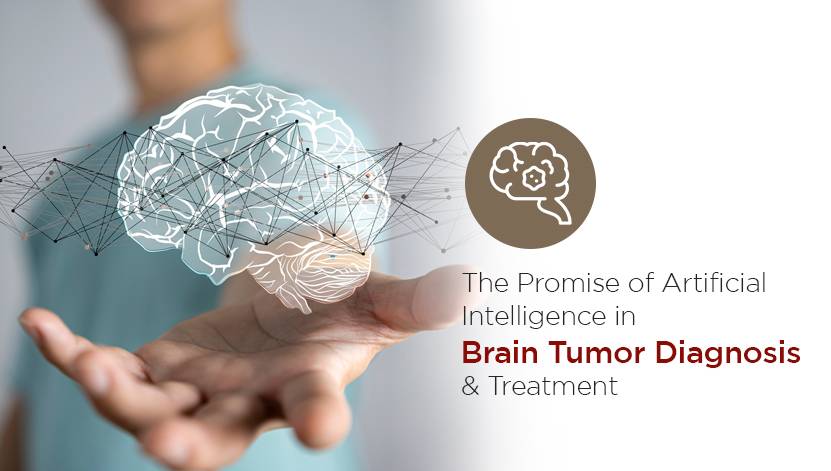Artificial intelligence (AI) has transformed the healthcare industry by providing innovative solutions to complex medical problems. AI is now stepping up to give hopeful diagnoses and therapies for brain tumors, which are one of the most complex cancers affecting people today. With its capacity to analyze large amounts of data quickly and accurately, AI is revolutionizing brain tumor diagnosis, enabling doctors to make more informed decisions about patient care. Let us explore the promise of artificial intelligence in brain tumor diagnosis and treatment, as well as its potential limitations and prospects. So, let's dive in!
